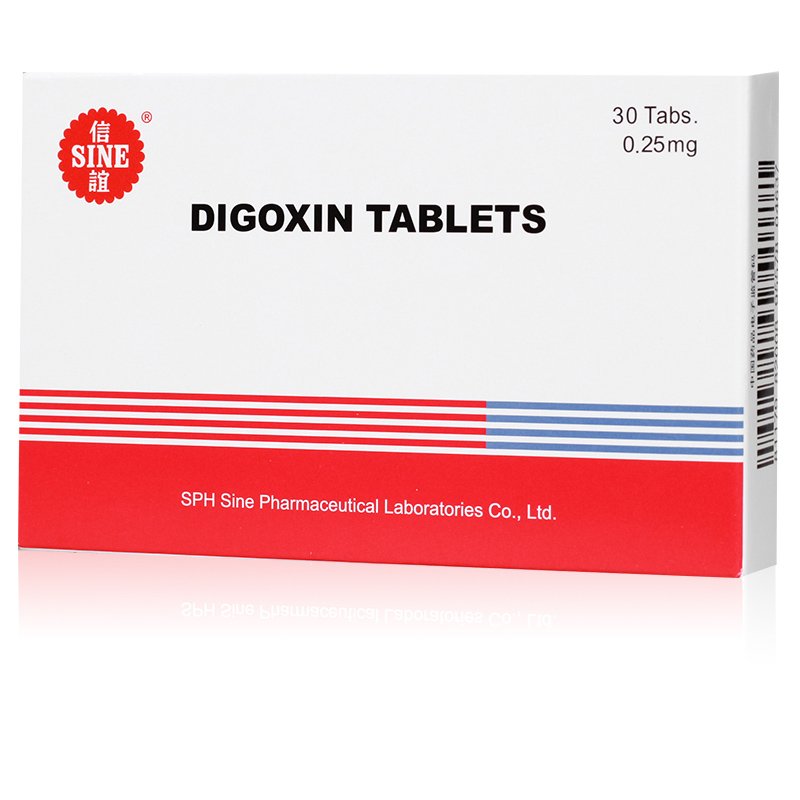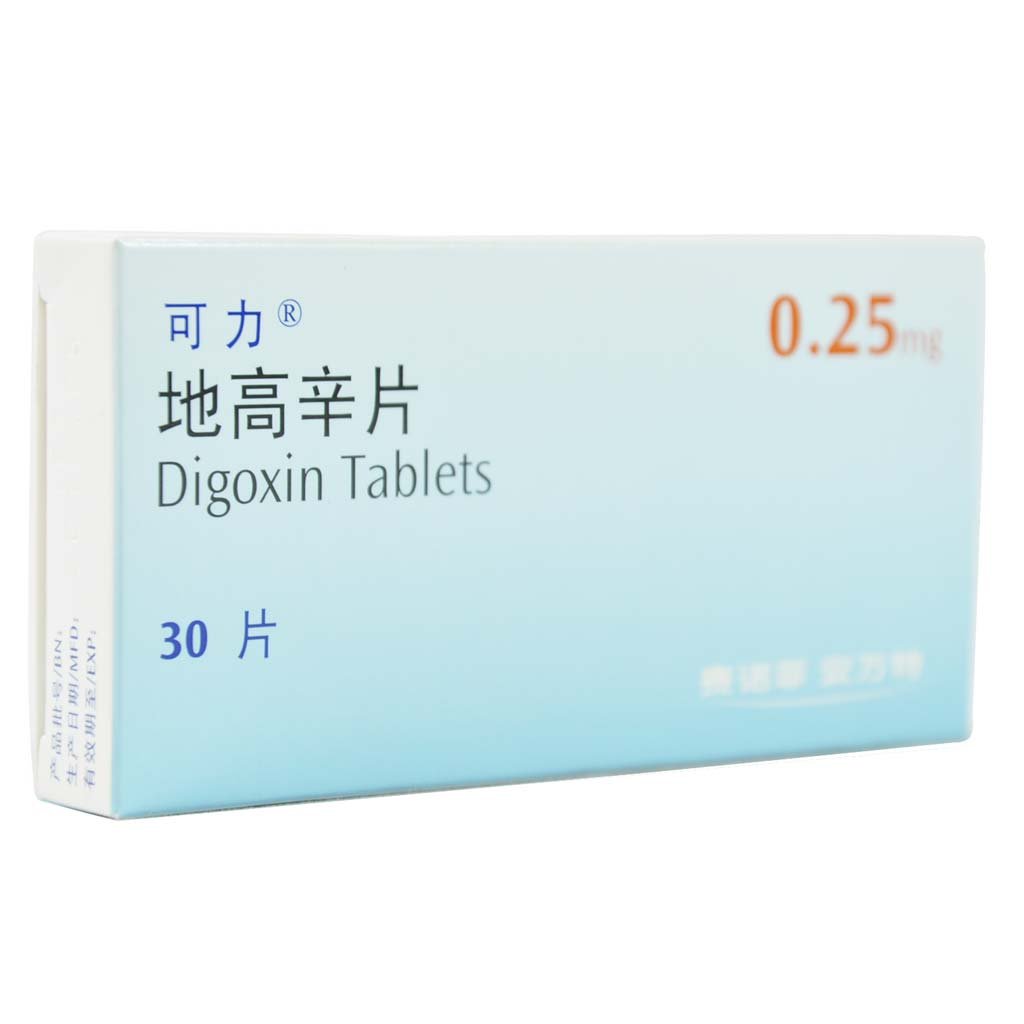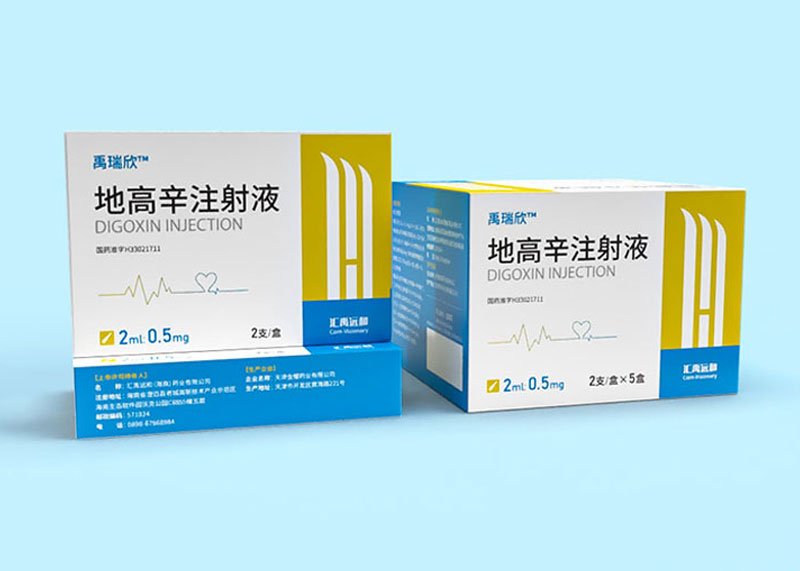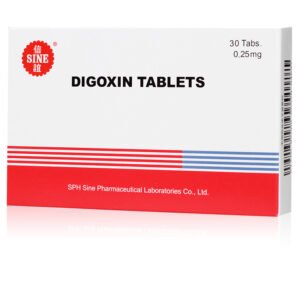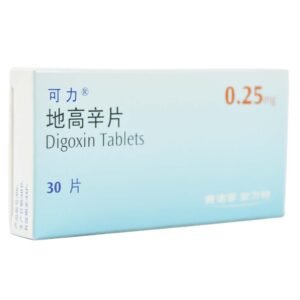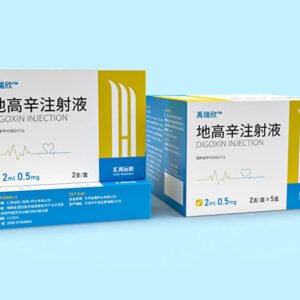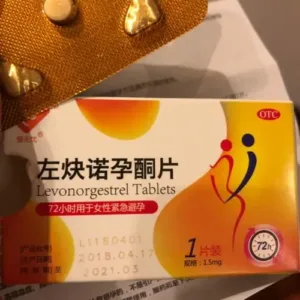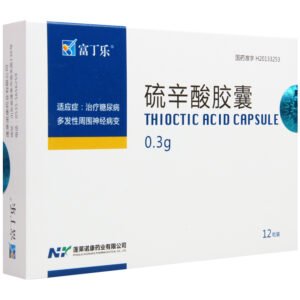Digoxin
Function:
It is used for acute and chronic cardiac insufficiency such as hypertension, valvular heart disease, and congenital heart disease. Used for atrial fibrillation, atrial flutter and supraventricular tachycardia associated with rapid ventricular rate.
Dosage:
Oral medication for adults: rapid loading method, take 0.25mg every 6-8 hours, total dose 0.75-1.25mg; slow dosage method, 0.125-0.5mg, once a day, steady-state plasma concentration can be achieved in 7 days; maintenance dose in the future , once a day, 0.125-0.5mg. Please follow your doctor’s advice for details. Oral dosage should be carefully adjusted to individual patient differences; preferably taken on an empty stomach. If you feel stomach upset after taking this medicine, you can take it with food. Please consult your doctor for details. Intravenous injection: 0.25-0.5mg, dilute with 5% glucose injection and inject slowly; then 0.25mg can be used, injected as needed every 4-6 hours, but the total daily dose does not exceed 1mg. Please follow your doctor’s advice for details. Oral medication for children: saturated dose, children <2 years old, 0.06-0.08mg/kg, >2 years old, 0.04-0.06mg/kg, oral dose is divided into 3-6 times, use up in 1-2 days, then use the above amount 1/4 of it is the daily maintenance amount. Please follow your doctor’s advice for details. Intravenous injection: saturating dose, children <2 years old, 0.04-0.06mg/kg; >2 years old, 0.02-0.04mg/kg. Please follow your doctor’s advice for details. Note: Medication for children must be carried out under the guidance of a doctor and adult supervision.
Adverse reactions:
Gastrointestinal reactions: such as nausea, vomiting, lack of appetite; diarrhea, abdominal pain, etc. may occur. Nervous system symptoms: include headache, facial neuralgia, fatigue, weakness, dizziness, drowsiness, disorientation, confusion, and nightmares; less commonly, delirium, acute psychosis, and hallucinations. Convulsions have been reported. Visual disorders such as blurred vision or “color vision” such as yellow vision and green vision may occur. Hypersensitivity reactions such as rash and urticaria rarely occur. Digoxin has certain estrogenic activity and occasionally causes gynecomastia to develop in therapeutic doses. The most serious adverse reactions are cardiac reactions, and toxic doses can cause heart failure or worsen symptoms. The most important proarrhythmia is premature ventricular contractions, followed by atrioventricular block, ventricular tachycardia, sinus arrest, ventricular fibrillation, etc. Arrhythmias are more common in children than other reactions, but ventricular arrhythmias are less common than in adults. If any of the above adverse reactions occur, please inform your doctor in time. The doctor will determine whether the medication should be discontinued or take necessary measures based on the severity of the adverse reactions.
Drug contraindications:
If you are allergic to this product, use with caution during lactation. Use with caution during pregnancy.
Share:
Products
Our offers
Health Classification
Let us work together to protect precious health

